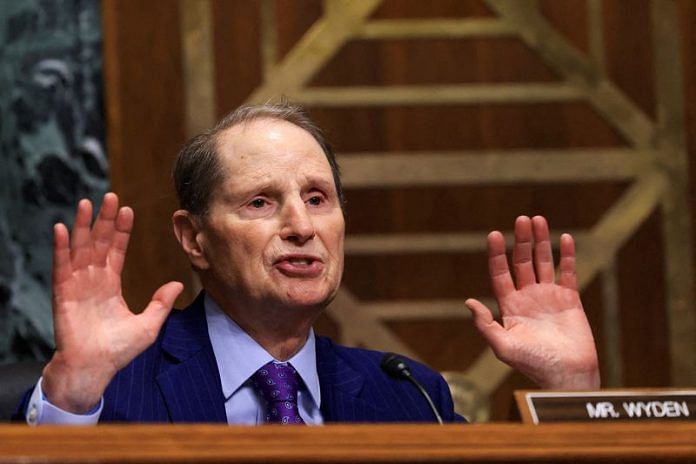By David Morgan
WASHINGTON (Reuters) -An evenly split U.S. Senate rejected the latest bipartisan bid to block President Donald Trump’s tariffs on Wednesday, hours after the federal government reported that the nation’s economy contracted for the first time in three years amid the chaos of the president’s tariff policies.
Three Republicans joined Democrats to support the measure to terminate the national emergency that Trump declared as the basis for 10% global tariffs on U.S. trading partners and higher reciprocal tariffs on 57 trading partners including the European Union.
But the 49-49 vote fell short of the simple majority needed to pass the resolution and send it on to the House of Representatives.
Republican support was down from just weeks ago, when four Senate Republicans joined Democrats to pass a similar bill to terminate new tariffs on Canada. Republicans currently hold a 53-47 majority.
“The United States Senate cannot be an idle spectator in the tariff madness. The Congress has the power to set tariffs and regulate global trade,” Senator Ron Wyden, an Oregon Democrat who introduced the resolution, said ahead of the vote.
The U.S. economy contracted at an annualized rate of 0.3% during the first three months of 2025, the Commerce Department reported earlier on Wednesday, amid a flood of imports as businesses raced to avoid higher costs from tariffs. It was the first decline since the first quarter of 2022.
The economic report, which provided the first tangible evidence of the economic effects of the Trump tariffs, followed weeks of turmoil in U.S. stock and bonds as economists warned that tariffs would lead to rising consumer prices and a possible recession.
The resolution was co-sponsored by Republican Senator Rand Paul of Kentucky, an outspoken critic of Trump’s tariff policy. It also drew support from Republican Senators Susan Collins and Lisa Murkowski. Senator Mitch McConnell, a fourth Republican who had voted for the earlier measure, was absent.
“It’s not perfect. I think it’s too broad. But it sends the message that I want to send – that we really need to be far more discriminatory in imposing these tariffs and not treat allies like Canada the way we treat adversaries like China,” Collins, of Maine, told reporters.
The earlier measure, which had multiple Republican sponsors, went nowhere in the Republican-controlled House of Representatives, which last month blocked the ability of Congress to move quickly to challenge Trump’s tariffs.
The White House threatened to veto the latest resolution on Monday, saying it would undermine national and economic security.
(Reporting by David Morgan in Washington; Editing by Scott Malone, Matthew Lewis and Diane Craft)
Disclaimer: This report is auto generated from the Reuters news service. ThePrint holds no responsibility for its content.




